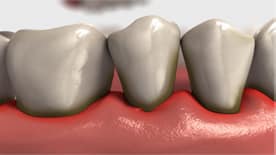-
-

TEETH WHITENING
What Is Stannous Fluoride Toothpaste?Stannous fluoride toothpaste helps prevent cavities, reduce sensitivity, fight plaque, and support daily gum and enamel health.

Selecting Dental Products
Best Toothpaste in India: Five Dentist-Recommended TypesToothpastes today are formulated to meet your every dental need and come in many flavours. Have your dental professional suggest the best toothpaste in India.
-
Science & Innovation
- ORAL HEALTH CHECK
- PRODUCT MATCH
- Colgate® | Toothpaste, Toothbrushes & Oral Care Resources
- Oral Health
- Heart Disease 101
- Periodontal Disease And Cardiovascular Disease


Cardiovascular disease affects the heart and/or blood vessels. More than 50 million Americans experience cardiovascular problems and cardiovascular disease is the number one cause of death and disability in the United States. By the time heart problems are detected, the underlying cause (atherosclerosis) is usually quite advanced. Therefore, prevention through the modification of risk factors, such as healthy eating, exercise and not smoking is key.
 Example of periodontitis.
Example of periodontitis.
Recent research indicates that periodontitis may be associated with the development of cardiovascular disease. One theory is that the inflammatory proteins and the bacteria in the periodontal tissue enter the blood stream and cause various effects on the cardiovascular system. A recent study1 examined the presence of bacteria known to cause periodontitis and the thickening of the blood vessel wall commonly seen in heart disease. After examining samples from more than 650 subjects, the investigators concluded that an increased level of blood vessel thickening was associated with the presence of the same bacteria found in dental plaque known to cause periodontitis.
Many aspects of your health should be considered when assessing your periodontal status and developing comprehensive treatment plans. For those at risk for developing or those with preexisting cardiovascular disease, critical factors to consider include the severity of the disease; the duration of your disease; the presence of other medical conditions, such as diabetes, that may affect the cardiovascular disease; and the presence of concurrent risk factors for periodontal diseases. In addition, the dentist may communicate with your physician to determine the level of care, treatment for the condition, and your general well-being.
Reducing bacteria and eliminating biofilm, both above and below the gumline, are integral to oral and systemic health. This can be accomplished with traditional scaling and root planing in addition to excellent home care. Oral hygiene instructions are an important part of the treatment plan for all patients, particularly for high-risk patients, like those with cardiovascular disease. Treatment should focus on the prevention of periodontal disease and oral inflammation, which is essential in controlling the oral complications associated with cardiovascular disease. And because we know that bacterial challenge is a risk factor for gingivitis among even healthy patients, patients should be encouraged to floss regularly and brush twice daily with a toothpaste that offers antibacterial protection.
© Copyright 2009 Colgate-Palmolive Company
Reference
1. Circulation. 2005 Feb 8; 111(5):576-82.
11/15/2010
This article is intended to promote understanding of and knowledge about general oral health topics. It is not intended to be a substitute for professional advice, diagnosis or treatment. Always seek the advice of your dentist or other qualified healthcare provider with any questions you may have regarding a medical condition or treatment.
ORAL HEALTH QUIZ
What's behind your smile?
Take our Oral Health assessment to get the most from your oral care routine
2.3 billion
people worldwide suffer from tooth decay
ORAL HEALTH QUIZ
What's behind your smile?
Take our Oral Health assessment to get the most from your oral care routine
2.3 billion
people worldwide suffer from tooth decay
Related Products

Helping dental professionals
More professionals across the world trust Colgate. Find resources, products, and information to give your patients a healthier future










